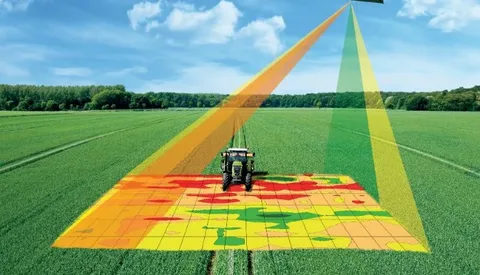Precision Agriculture and Water Conservation: Maximizing Yields with Minimal Resources
In today’s rapidly evolving agricultural landscape, the need to increase crop yields while conserving vital resources has become a pressing priority. Precision agriculture and water conservation: maximizing yields with minimal resources is a transformative approach that addresses these challenges by integrating advanced technologies and sustainable practices to optimize both productivity and resource use.
Understanding Precision Agriculture
Precision agriculture refers to the use of technology-driven techniques—such as GPS, sensors, drones, and data analytics—to monitor and manage field variability in crops. By precisely targeting inputs like seeds, fertilizers, and water, farmers can improve efficiency and reduce waste. This approach not only increases crop yields but also minimizes environmental impacts, making farming more sustainable.
The Importance of Water Conservation in Farming
Water is an essential resource for agriculture, yet it is becoming increasingly scarce due to climate change, population growth, and overuse. Efficient water management is critical to ensure that crops receive adequate hydration without depleting water reserves. Traditional irrigation methods often lead to overwatering, runoff, and wastage, which can harm both crops and the environment.
Integrating Precision Agriculture and Water Conservation
The synergy between precision agriculture and water conservation: maximizing yields with minimal resources lies in the ability to use precise data to tailor irrigation schedules and amounts. Soil moisture sensors and satellite imagery provide real-time information on water needs, allowing farmers to irrigate only when and where necessary. This targeted approach reduces water consumption significantly while maintaining or even boosting crop productivity.
Benefits of This Integration
- Resource Efficiency: Optimizing water use reduces consumption, lowers costs, and conserves local water supplies.
- Higher Yields: Healthy crops with adequate but not excessive water perform better, resulting in increased yields.
- Environmental Protection: Minimizing runoff and leaching helps prevent soil erosion and contamination of water bodies.
- Sustainability: This method supports long-term agricultural viability by preserving essential resources.
Future Prospects and Challenges
While the benefits of precision agriculture and water conservation: maximizing yields with minimal resources are clear, widespread adoption faces challenges. High initial costs, lack of access to technology, and the need for farmer education can slow progress. However, ongoing advancements and government incentives are paving the way for broader implementation.
By embracing precision agriculture and water conservation techniques, farmers can meet the global demand for food while preserving precious resources for future generations. This innovative approach is a key step toward sustainable agriculture that balances productivity with environmental stewardship.

